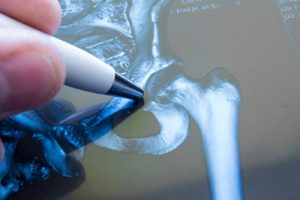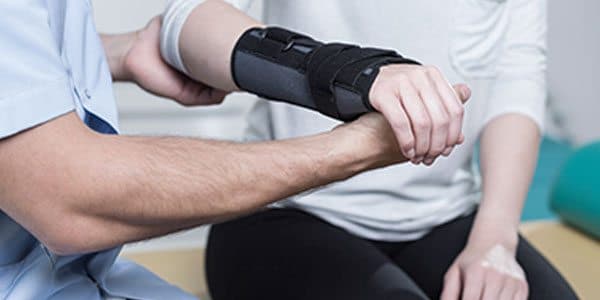Improving dietary habits might prove crucial in helping post-menopausal women curtail their chances of experiencing bone fractures.
When it comes to aging, the connection between menopause and bone health is apparent and diet can be a significant variable.
What Is Menopause?
During this naturally-occurring medical condition that typically impacts women in their late 40s or early 50s, a woman’s ovaries cease production of reproductive hormones such as estrogen. Once the menopausal process is completed, women no longer experience menstrual cycles and are unable to bear children.
Post-Menopause and The Increased Risk of Developing Bone Fractures
The truth is, postmenopausal women are at increased risk of experiencing bone breaks for several reasons. One major factor is age. As women grow older, their bones weaken and become more brittle, leaving them more susceptible to injury.
However, the decreased estrogen production a postmenopausal woman contends with, places her bones in greater peril. One of estrogen’s primary tasks is strengthening bones by helping such structures maintain normal density levels.
Hormonal decline causes bones to experience significant decreases in density (a condition medically referred to as osteoporosis), which leaves them vulnerable to all types of injuries, especially breaks. Even in instances where women do not experience full-fledged bone breakages, bone density problems may precipitate significant and sometimes debilitating pain. It is also important to note that decreased bone density can cause serious injuries that result from minor occurrences. Simply translated, a woman would not need to suffer a serious fall or be involved in an accident to suffer bone maladies. Normal, everyday movements like walking or light exercise could initiate trouble.
What Role Can Diet Play?

There are those scientists who opine that observing an “anti-inflammatory” diet, or chronobiology-based diet (known as the Chronodiet), might improve bone density and make postmenopausal women less likely to be stricken with osteoporosis. Adherents of an anti-inflammatory diet, which in is in some ways is comparable to the well-known Mediterranean Diet, will consume increased quantities of foods and beverages such as fruits, vegetables, water, wine, olive oil, grain products and various herbs and spices.
Research Results
A scientific examination conducted by researchers representing several medical institutions throughout the world and published in a May 2016 edition of the Journal of The American Medical Association (JAMA) looked into a possible link between diet and bone health in postmenopausal women. More than 93,000 women between the ages of 50 and 79 took part in the study that began in 1993 and was completed in 2014. The test subjects were judged on how closely their individual dietary habits resembled the Mediterranean Diet and other noted healthy dietary guidelines. Research concluded that those adhering to the Mediterranean Diet were less likely to experience hip breakages.
Other Supplementary Preventative Actions Post-Menopausal Women Can Employ
While adopting healthier dietary practices might be one way for a post-menopausal woman to potentially prevent the onset of osteoporosis, there are other safeguards she can employ. These include receiving routine bone density scans, participating in weight-bearing exercises designed to strengthen muscles and bones and, if hormonal decline is excessively rapid or precipitating osteoporosis and other severe physical manifestations, consider undergoing hormone replacement therapy.





